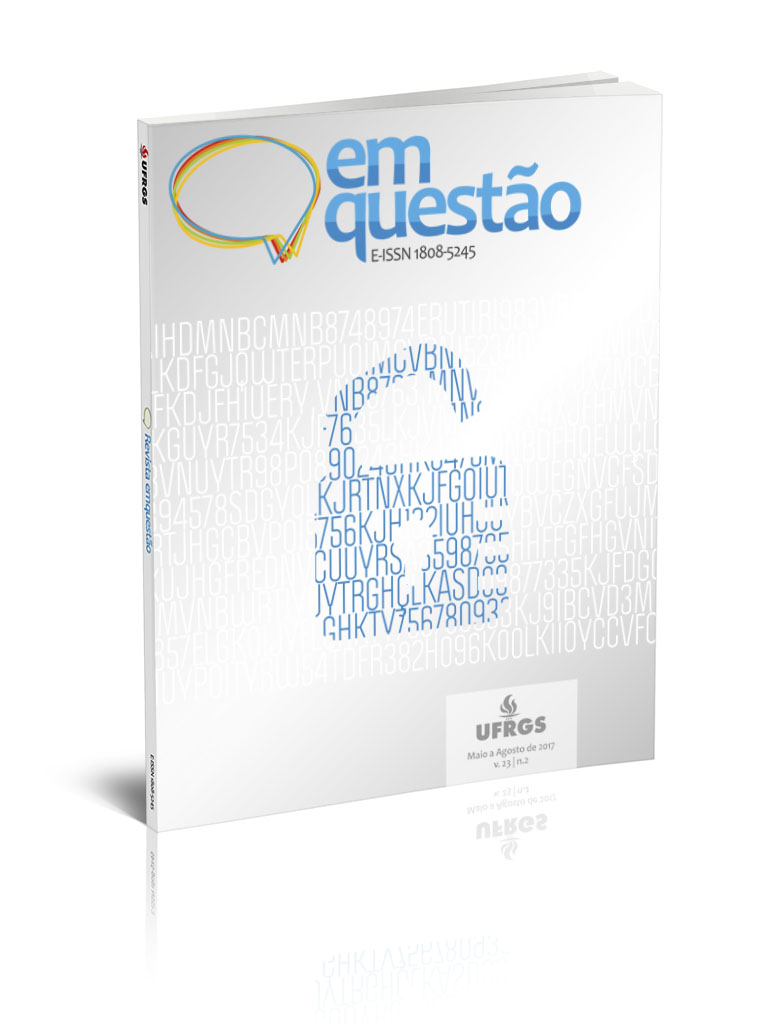Green technologies for a self-sustaining world: a look over Brazil and Spain
DOI:
https://doi.org/10.19132/1808-5245232.277-294Keywords:
Green economy. Sustainability. Green technologies. Innovation. Green patents.Abstract
The paper discusses about green technologies in the scope of the innovation process, based on the analysis of the green patents requested in a global level and, more specifically, on the study of the priority patents Brazil and Spain. Green patents, defined here, as patents that have focus in green technology, that is, adaptive and mitigation technologies of the climate change, which comprehends reduction of carbon emissions and pollution, efficient increase of energy and resources and reduction of the biodiversity loss and the ecosystems. From the methodological point of view, a search strategy was formulated based on the Green Technology Manual Codes tables. The established concept of the green technology by the United Nations Framework Convention on Climate Change was used to build the corpus of the 224.673 patent registers extract from Derwent World Patents Index data bases, between 2004 and 2013. The results of the analysis demonstrate the extent of the efforts mobilization, sometimes set up under the aegis of the green economy, which aims to change the traditional production model, not only as an option but as an imperative trend of the world economyDownloads
References
CLARIVATES ANALYTICS. Green technology manual codes. [S.l., 2016?]. Disponível em: <http://ip.thomsonreuters.com/dwpi_greencodes>. Acesso em: 03 mai. 2016.
COPENHAGEN ECONOMICS. Assessment of barriers to trade and investment between the EU and Japan: report prepared for the European Commission. Copenhagen: DG Trade, 2009.
EE.UU. Convención marco de las naciones sobre el cambio climático. Nueva York: Naciones Unidas, 1992
GLASS, V. O lado B da economia verde. Desafios do Desenvolvimento, Brasília, ano 9, n. 72, 2012.
HARGRAVE, J.; PAULSEN, S. Economia verde e desenvolvimento sustentável. Desafios do Desenvolvimento, Brasília, DF, ano 9, n. 72, 2012.
HULTMAN, N. E. et al. Factors in low-carbon energy transformations: comparing nuclear and bioenergy in Brazil, Sweden, and the U.S. [S.l.] Energy Policy, v. 40 p. 131-146, Jan. 2012.
ORGANIZAÇÃO PARA A COOPERAÇÃO E DESENVOLVIMENTO ECONÔMICO. A caminho do crescimento verde: um sumário para os decisores políticos: maio de 2011. Paris, 2011.
ORGANIZAÇÃO PARA A COOPERAÇÃO E DESENVOLVIMENTO ECONÔMICO. Manuel de l'OCDE sur les statistiques des brevets. Paris: OECD Publishing, 2009. Disponível em: <http://dx.doi.org/10.1787/9789264056466-fr>. Acesso em: 2 set. 2016.
ORGANIZAÇÃO PARA A COOPERAÇÃO E DESENVOLVIMENTO ECONÔMICO. The impact of trade-related intellectual property rights on trade and foreign direct investment in developing countries, OECD Papers, Paris, v. 3, n. 11, p. 4, Nov. 2003.
SANTOS, R. N. M. Sistemas de informações estratégicas para a vitalidade da empresa. Ciência da Informação, Brasília, v. 25, n. 1, 1996. Disponível em: <http://revista.ibict.br/ciinf/index.php/ciinf/article/view/482>. Acesso em: 2 set. 2016.
UNITED NATIONS ENVIRONMENT PROGRAMME. Towards a green economy: pathways to sustainable development and poverty eradication. [S. l.]: UNEP, 2011.
Downloads
Published
How to Cite
Issue
Section
License
Copyright (c) 2017 Em Questão

This work is licensed under a Creative Commons Attribution 4.0 International License.
Authors who publish with this journal agree to the following terms:
Authors will keep their copyright and grant the journal with the right of first publication, the work licensed under License Creative Commons Attribution (CC BY 4.0), which allows for the sharing of work and the recognition of authorship.
Authors can take on additional contracts separately for non-exclusive distribution of the version of the work published in this journal, such as publishing in an institutional repository, acknowledging its initial publication in this journal.
The articles are open access and free. In accordance with the license, you must give appropriate credit, provide a link to the license, and indicate if changes were made. You may not apply legal terms or technological measures that legally restrict others from doing anything the license permits.













